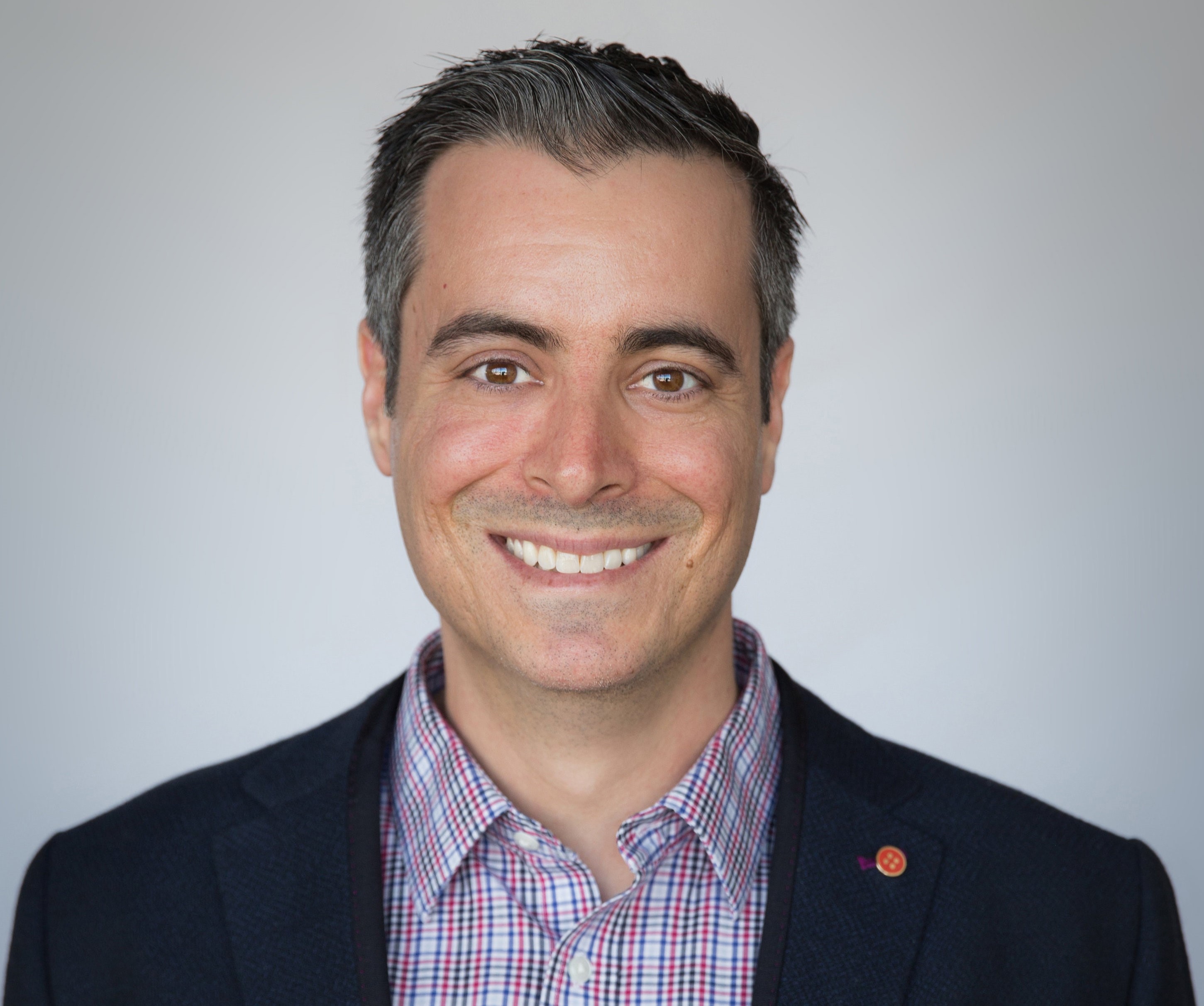
Michael Francis, PhD’10 (PATH), co-founder of Embody Inc.
In 2007, Michael Francis, PhD’10 (PATH), was learning the ins and outs of collagen in a biomedical engineering lab at VCU. He didn’t imagine at the time that collagen would one day become his life’s work and the basis for Embody Inc., a medical device company he co-founded in 2014, where he is now chief scientific officer.
Today, with more than 20 patents to Embody’s credit, Francis remains fascinated by collagen’s potential as a healing and additive manufacturing substrate, noting that it’s a major part of what ligaments, tendons and muscles are made of. “It only makes sense to use what Mother Nature cooked up because Mother Nature has been working on us for quite a while,” Francis says.
While in school, Francis built on his knowledge of collagen, progressing through several tissue engineering labs and learning about electrospinning, a fiber biomanufacturing method that he describes jokingly as “what all the cool kids were doing in graduate school.”
It was while working in those labs that he met Yas Maghdouri-White, Ph.D. who – after earning her doctoral degree in biomedical engineering – would go on to become one of Embody’s first employees in February 2016 and is now a senior research and development scientist at the company. Interestingly, it was also in those labs where Francis met his wife, Anna Bulysheva, Ph.D., now a College of Engineering graduate.
Electrospinning, Francis says, is a 100-year-old technology that became the subject of intense interest in biomedical and tissue engineering about 30 years ago. Calling it “the great hype and the great hope in fiber-based tissue engineered medical products,” he says that working with the procedure at VCU taught him how to do rigorous research — “and a whole lot of ways to make bad things with electrospinning that didn’t work, besetting the few well-hidden paths with promise.”
Maghdouri-White laughs at the recollection and agrees. “You say, ‘OK, we’re going to do this and it’s going to end up with these great results.’ Until you implement that and experiment with it, you don’t know how many things can and will go wrong,” she says.
That spirit of trial and error, however, prepared them for the long process of creating an innovative new product. Maghdouri-White recalls mentorship from faculty members including David Simpson, Ph.D., associate professor in the Department of Anatomy and Neurobiology. Francis says, “Great facilities, great mentorship and great people at VCU helped guide our initial thinking and gave us the tools to help build a successful company.”
Based in Norfolk, Virginia, Embody plans to commercially launch electrospun products (Tapestry™) for the repair of tendon injuries by the end of this year. The company has multiple tendon regenerative medical devices currently being reviewed by the U.S. Food and Drug Administration, which promise to be the first-ever electrospun collagen-based products to be cleared by the FDA as a surgical mesh for tendon repair.
Founded off a $12.2 million grant from the Defense Advanced Research Projects Agency (DARPA), Embody uses collagen and novel manufacturing techniques — including electrospinning and microfluidic wet-extrusion — to create sports medicine products that could promote faster healing and reduce scar formation. The focus is currently on sports medicine and orthopedic injuries to the Achilles tendon, rotator cuff and ACL, which are a major concern for members of the armed services and athletes, among others. The company announced $9.3 million in Series A venture capital funding, which it closed in March 2020.
Francis notes that existing surgical procedures to repair tendon and ligaments often result in scar formation. “A scar can be thought of like a rat’s nest,” he says. “It’s very disorganized. The collagen the body makes in response to the injury lacks structure, and it’s structure that gives strength.” The idea behind Embody’s technology is to use additive manufacturing of organized collagen microfibers to create a product that supports the body in rapidly adding healthy, more organized tissue, which would make healed tissue stronger and reduce the reinjury rate.
Collagen does present manufacturing challenges and expense beyond that associated with the synthetic (plastic) polymers often used to address these types of injuries. However, Embody hopes to address this with new techniques — including the use of the world’s first 3-D bioprinter for strong collagen fibers to rapidly engineer ligament- and tendon-like tissue constructs that are decorated with human stem cells to form multiple tissue and junctional complexes.
Francis and his team invented the bioprinting method with the work funded with a $1 million U.S. Army grant. “With this advanced bioprinter we look to radically change the way medical implants are manufactured, significantly accelerating patient return to sport at pre-injury performance levels,” Francis says.
Since 2015, Francis has served as the company’s principal investigator on $22 million in grants, including from DARPA, Department of Defense, Air Force, National Institutes of Health, Virginia Center for Innovative Technology’s Commonwealth Research Commercialization Fund and Virginia Catalyst.
Years of development work has yielded original technologies, and Maghdouri-White says, “It feels really good to be close to the point where the first product will be distributed to hospitals and clinically tested in humans, helping people to heal faster and be able to go back to normal.”
With products from their core electrospinning technology nearing FDA approval, Francis says Embody is communicating with a number of surgeons who are interested in using the technology once it’s approved. He says, “The pursuit of the science is tantalizing, it’s exciting, it’s invigorating, but for me, it’s all for naught if we don’t actually end up helping people.”